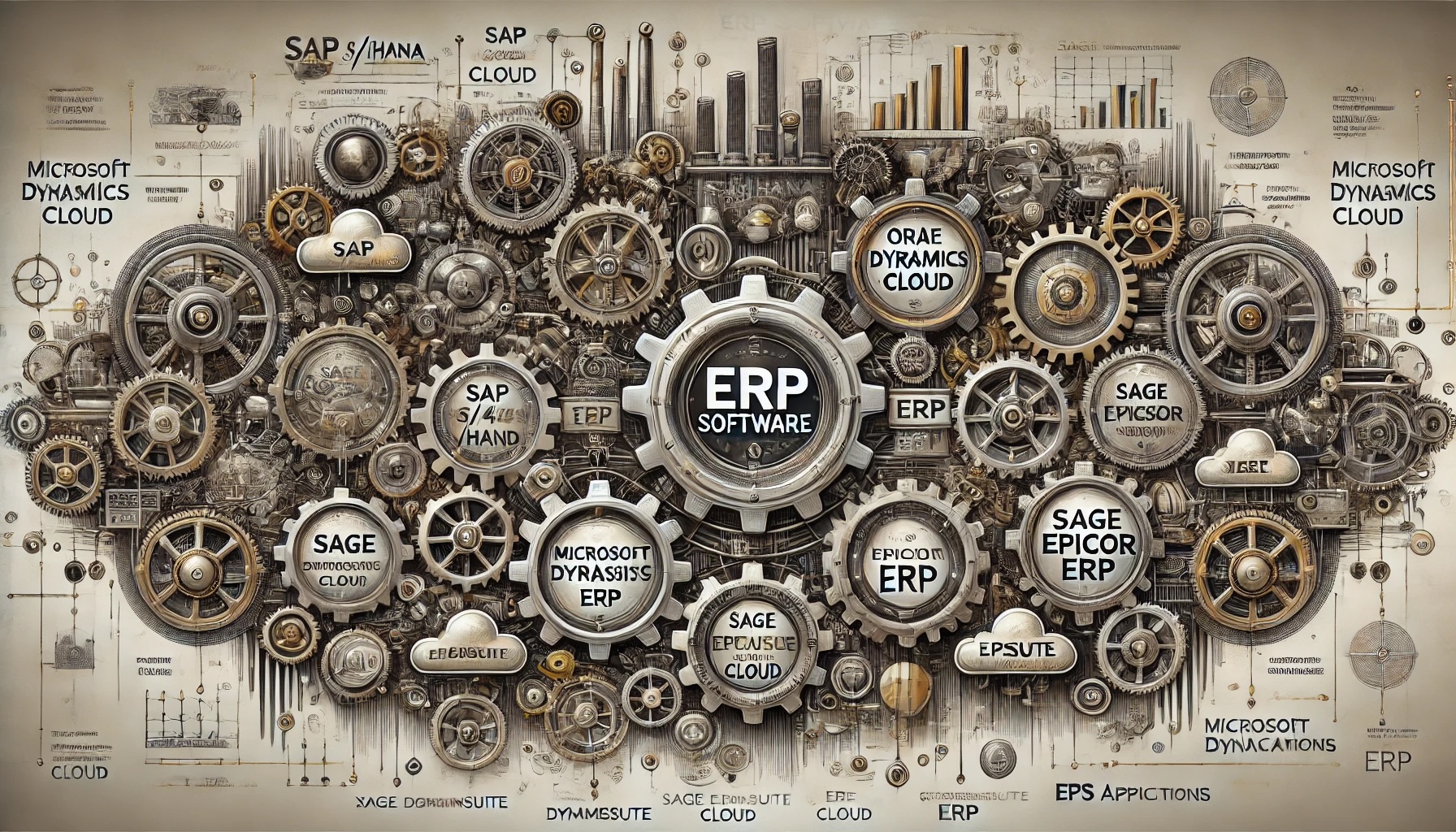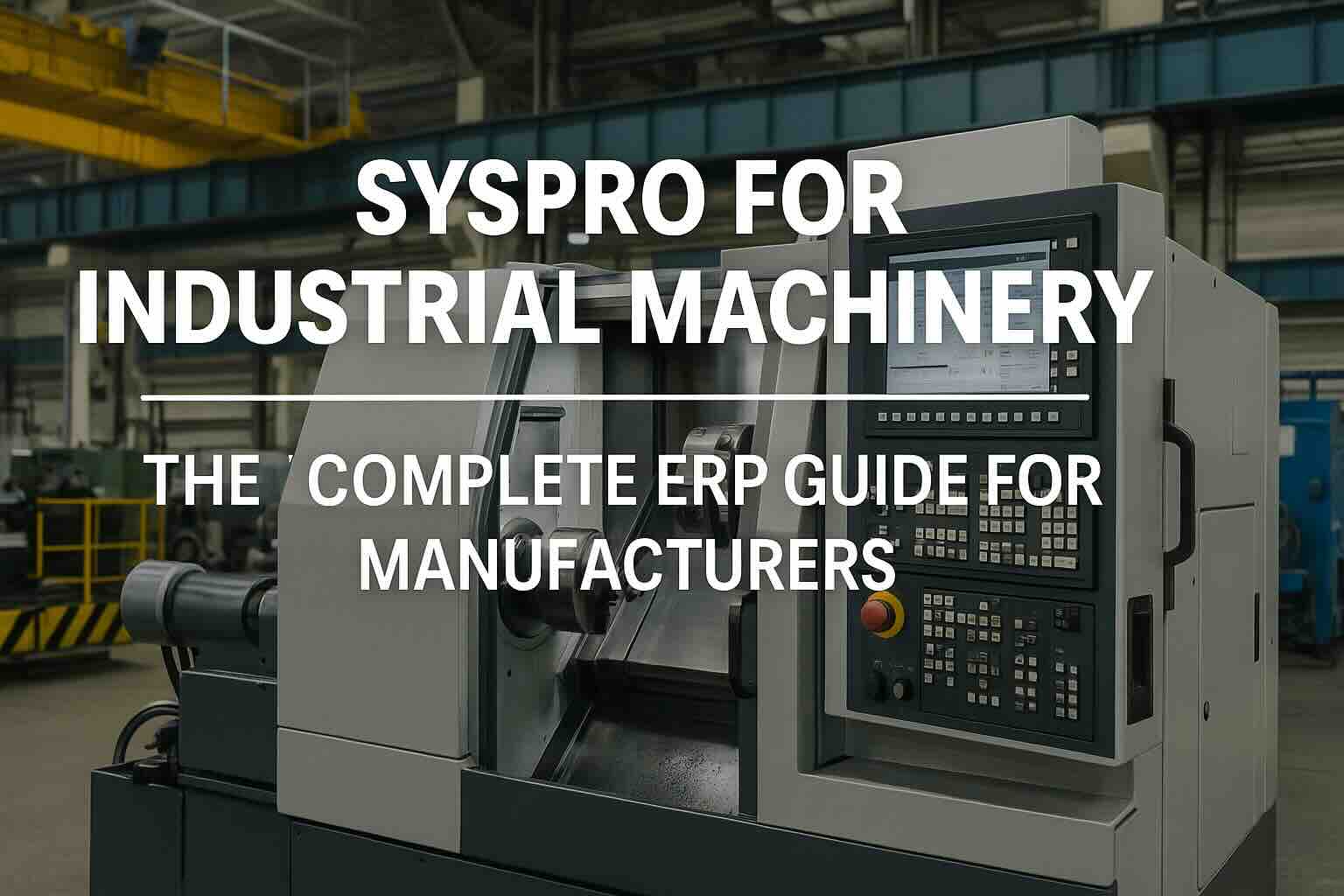Exploring the Suitability of IFS Cloud for Large Manufacturing Companies in North America

In the rapidly evolving landscape of North American manufacturing, the demand for robust, scalable, and industry-specific Enterprise Resource Planning (ERP) solutions has never been higher. Manufacturing companies, particularly those operating on a large scale, face complex challenges in managing operations, maintaining equipment, and delivering exceptional customer service. Among the various ERP solutions available, IFS Cloud stands out as a particularly strong contender. This blog explores the suitability of IFS Cloud for large manufacturing companies in North America, analyzing its ERP capabilities, field service management (FSM), and enterprise asset management (EAM) solutions.
IFS Cloud: A Comprehensive ERP Solution Tailored for Manufacturing
IFS Cloud is a unified platform that provides a full suite of business applications, integrating ERP, EAM, and FSM into a single, cohesive system. For large manufacturing companies, this integration is crucial as it ensures seamless operations across various departments and locations. The platform is designed to support the unique demands of manufacturing, offering capabilities that go beyond standard ERP functionalities.
1. ERP Capabilities
At the core of IFS Cloud is its powerful ERP system, which is tailored to meet the specific needs of the manufacturing industry. It provides end-to-end management of key business processes, including supply chain management, production planning, financials, human resources, and customer relationship management. One of the standout features of IFS Cloud’s ERP is its ability to handle complex manufacturing processes such as Engineer-to-Order (ETO), Make-to-Order (MTO), and Make-to-Stock (MTS) production models. This flexibility allows manufacturers to optimize production workflows and improve time-to-market for new products.
Additionally, IFS Cloud supports advanced manufacturing methodologies such as Lean Manufacturing and Total Quality Management (TQM), enabling companies to maintain high standards of efficiency and product quality. The ERP system is also equipped with advanced analytics and reporting tools, providing manufacturers with real-time insights into operational performance, which is critical for informed decision-making.
2. Field Service Management (FSM)
Field service is a critical component for manufacturing companies, particularly those that offer after-sales services, maintenance, or have equipment that requires regular servicing. IFS Cloud’s Field Service Management solution is designed to streamline these operations by optimizing resource allocation, scheduling, and service delivery. The FSM solution offers real-time visibility into field operations, ensuring that service technicians are deployed efficiently and customer issues are resolved promptly.
For manufacturers, this capability is invaluable, as it enhances customer satisfaction and supports long-term customer relationships. The integration of FSM with the ERP system also ensures that field operations are aligned with broader business objectives, allowing for better coordination between service teams and manufacturing units.
3. Enterprise Asset Management (EAM)
Large manufacturing companies often operate with significant investments in machinery, equipment, and facilities. Maintaining these assets at peak performance is essential to avoid downtime and ensure continuous production. IFS Cloud’s Enterprise Asset Management solution is specifically designed to address these needs. It provides comprehensive tools for managing the entire asset lifecycle, from procurement and deployment to maintenance and decommissioning.
The EAM solution in IFS Cloud includes predictive maintenance capabilities, which use data analytics and IoT integration to anticipate equipment failures before they occur. This proactive approach to asset management reduces unplanned downtime and extends the lifespan of critical machinery, resulting in significant cost savings for manufacturers.
Industry-Specific Capabilities
One of the key strengths of IFS Cloud is its focus on industry-specific capabilities. Unlike generic ERP solutions, IFS Cloud is designed with deep industry expertise, particularly in sectors such as aerospace and defense, automotive, industrial manufacturing, and high-tech industries. This industry-specific focus means that IFS Cloud comes with pre-configured modules and best practices tailored to the unique challenges of these sectors.
For example, in the aerospace and defense sector, IFS Cloud offers specialized capabilities for managing complex supply chains, regulatory compliance, and project management. In the automotive industry, it supports just-in-time production and complex supplier networks. These tailored solutions enable large manufacturers to deploy IFS Cloud quickly and achieve faster time-to-value.
Competitive Strengths of IFS Cloud
When comparing IFS Cloud to other ERP vendors like SAP, Oracle, or Microsoft Dynamics, several competitive strengths stand out:
- Flexibility and Scalability: IFS Cloud is highly configurable, allowing large manufacturers to tailor the solution to their specific needs without extensive customization. Its modular architecture also makes it scalable, supporting growth and expansion without requiring a complete overhaul of the system.
- User Experience: IFS Cloud is known for its intuitive and user-friendly interface. This ease of use reduces the learning curve for employees, leading to quicker adoption and better utilization of the system.
- Total Cost of Ownership: IFS Cloud offers a competitive total cost of ownership (TCO). Its cloud-based deployment reduces the need for on-premise infrastructure and IT resources, while its comprehensive suite of tools minimizes the need for third-party integrations.
- Industry Expertise: The deep industry focus of IFS Cloud gives it a competitive edge over more generic ERP solutions. Its pre-configured industry solutions mean that large manufacturers can achieve quicker implementation times and benefit from industry-specific best practices.
Conclusion
For large manufacturing companies in North America, IFS Cloud offers a compelling ERP solution that is both comprehensive and tailored to the specific needs of the industry. Its integration of ERP, FSM, and EAM into a single platform ensures that all aspects of manufacturing operations are seamlessly managed, from production to service delivery and asset management.
The platform’s flexibility, industry-specific capabilities, and competitive total cost of ownership make it a strong choice for manufacturers looking to modernize their operations and maintain a competitive edge in the market. As manufacturing companies continue to navigate the challenges of the digital age, IFS Cloud stands out as a solution that can support their growth and innovation in the years to come.
By choosing IFS Cloud, large manufacturers in North America can ensure they are well-equipped to meet the demands of today’s complex and fast-paced manufacturing environment. Click this link to find out more about IFS Cloud.
To compare IFS Cloud with 100s of other ERP solutions, you can use our new AI-powered Compare ERP tool. It’s free to use and you get a guaranteed discount on your first year’s licence fees with a referral from Compare ERP.









